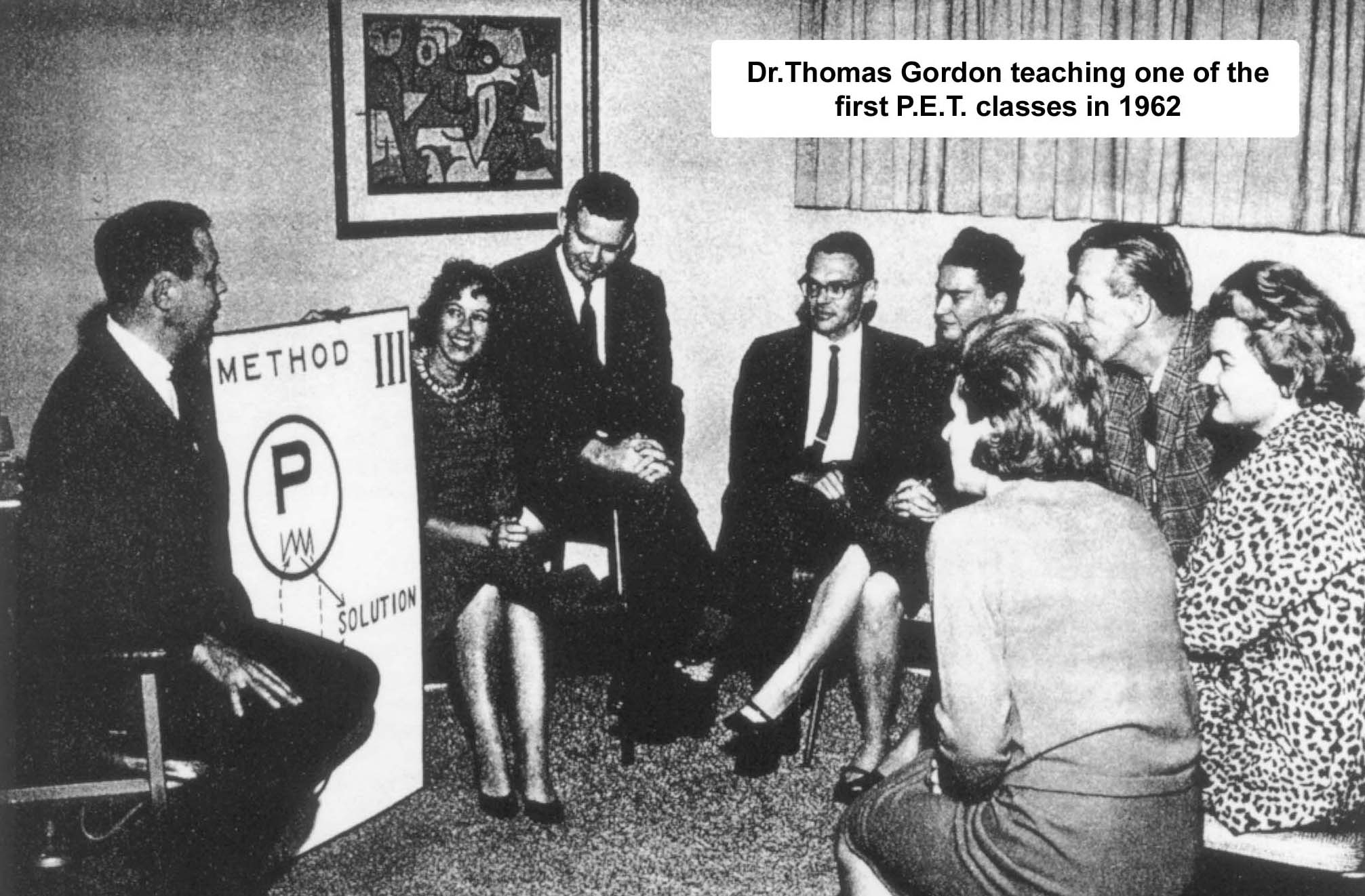(Please note that this Personal Postscript is by L.E.T.’s creator, Dr. Thomas Gordon. We share it with you in honor of this great man’s birthday, March 11th.)
I began to realize rather early in life, even before I went to high school, that there were good leaders and poor leaders in my world. I was not exactly sure what made the difference, but I remember thinking it had something to do with how much those people used their power—how much they punished or threatened to punish, how much they ordered me around, how much they tried to control me. These leaders were my various teachers, two school principals, a YMCA leader, two coaches, a Boy Scout leader, several camp counselors, a number of Sunday school teachers, my minister, and a mean assistant principal I shall never forget.
It was also very clear that with those I felt were “good” leaders I behaved one way and with the “poor” leaders quite another way. I liked myself much better with the good ones, and naturally I liked them. I worked harder at whatever activities the group was involved in, and I usually had a lot of fun. It was also easy to talk to these adults, and with them I enjoyed a kind of mutual kidding relationship.
With the poor ones, I always took on a different role and behaved in ways I didn’t like at all. I was not a productive member of the group; I spent a lot of time figuring out how to get back at these leaders by embarrassing them or putting them down; I resisted their direction; I acted the clown for the other group members; I often lied or covered up my mistakes; and I seldom had conversations or jokes with them. I didn’t like me in these relationships, and I certainly didn’t like them.
While all this puzzled me, I’m sure I didn’t think very deeply or analytically about leaders and leadership until I myself became a leader of a group of ten or more officers in the Army Air Corps during World War II. While I was highly motivated to be one of those “good” leaders, I soon discovered it wasn’t that easy. When I pushed my group too hard, I got rebellion and resistance. I didn’t want to threaten punishment for poor performance, yet rewards never worked for me either. Several of the members who had been my friends stopped being so friendly. Alliances often were formed against my well-conceived policies.
 Soon I became much more analytical about leadership. How does one get good performance from a group? How can leaders maintain good relationships with those over whom they are responsible? How does one develop a cohesive group with “team spirit”?
Soon I became much more analytical about leadership. How does one get good performance from a group? How can leaders maintain good relationships with those over whom they are responsible? How does one develop a cohesive group with “team spirit”?
Several years after returning to civilian life, I was invited to spend the summer of 1949 on a project at the National Training Laboratory for Group Development. Understandably, I saw this as a great opportunity to learn more about groups and leaders, especially since NTL (as it later was called) was a new leadership training center run by a group of pioneer scholars in this relatively new field.
That summer’s experience marked the beginning of my professional interest in leadership, an interest that I have never lost. I soon became a “leadership trainer,” read everything I could find on groups and leadership, and eventually developed what I thought was a rather coherent and promising new theory of effective leadership, which I published in a book—my first—called Group Centered Leadership: A Way of Releasing the Creative Potential of Groups (Boston: Houghton Mifflin, 1955). As it turned out, however, my colleagues in the field did not judge my model of effective leadership the same way I did. In fact, I am certain most of them didn’t even read the book. And seldom were my ideas referred to in publications on leadership.
Either it was a bad book or an inadequate model, or, as I now prefer to believe, it was too “radical” for its time. I was advocating some ideas that ran contrary to much of the thinking at that time—that leaders should never use their power, that they should involve group members in making all important decisions, that groups exist to meet the needs of all their members, that leaders can trust the “wisdom of the group,” that group members should participate in setting the group goals, that leaders should try to reduce the status differential between them and their group members, that rewards and punishment are ineffective as motivators, that leaders should learn the skills of the professional counselor.
Today, as professionals in the field know, these notions are in the mainstream of thinking about organizational leadership, and many have been verified by research studies. This is not to say that my earlier model contained everything that social scientists now know about effective leadership. Quite the contrary. Much more has been added to the body of knowledge about the complex relationship between leaders and followers; advances have been made in our understanding of group behavior and group development, what motivates group members, and what fosters creativity and productivity.
______________________________________________________________________________
Thank you, Tom Gordon, for starting something that continues to help millions of people around the world have more productive and healthy relationships!

